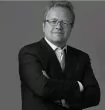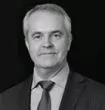The recent trend of using Dutch top holding companies in international mergers underlines the position of the Netherlands as a neutral country with a sophisticated and flexible legal and governance system.
A key decision in an international merger is the location of the new top holding. This is especially true for a merger between equals that are listed in various countries. The recent merger between Applied Materials (USA) and Tokyo Electron (Japan) marks a trend of merging companies establishing a new global holding company in the Netherlands, while retaining their headquarters in their home countries. Earlier in 2013, the newly created Fiat Industrial/CNH (Italy/the Netherlands) and Publicis Omnicom Group (France/USA) followed the same route by establishing a top holding company in the Netherlands.
Key factors in determining a location for a top holding include neutrality, political acceptability, flexible regulations that accommodate tailor-made governance regulations, a mature market and a beneficial tax regime. The recent trend of using Dutch top holding companies in international mergers underlines the position of the Netherlands as a neutral country with a sophisticated and flexible legal and governance system. Other international companies that have already used Dutch holding structures include STMicroelectronics, Lyondell-Basell and EADS, the parent company of Airbus.
The content of this article is intended to provide a general guide to the subject matter. Specialist advice should be sought about your specific circumstances.








